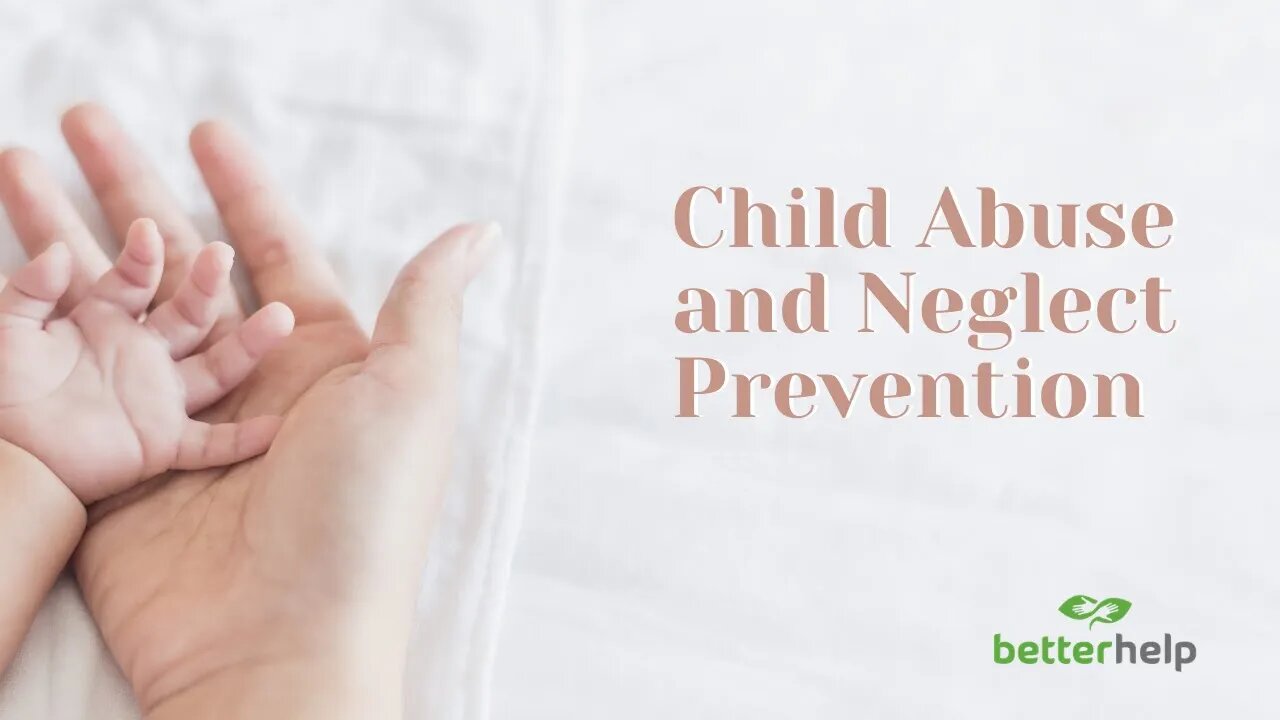Premium Only Content

Child and Elder Abuse Prevention
Dr. Dawn-Elise Snipes is a Licensed Professional Counselor and Qualified Clinical Supervisor. She received her PhD in Mental Health Counseling from the University of Florida in 2002. In addition to being a practicing clinician, she has provided training to counselors, social workers, nurses and case managers internationally since 2006 through AllCEUs.com Sponsored by BetterHelp. Clinicians, sign up with BetterHelp to increase your bookings and work from the comfort of your own home. https://hasofferstracking.betterhelp.com/aff_c?offer_id=20&aff_id=2373
Want to chat with me? Join me at https://members.docsnipes.com/ For $10/month you get access to my daily tips for health and wellness and you can text chat with me privately.
Child and Elder Abuse Prevention Dr. Dawn-Elise Snipes
#childabuse #prevention #elderabuse
CEUs available at: http://allceus.com/member/cart/index/product/id/65/c/
Objectives
~ Define the three types of prevention
~ Review risk factors for abuse
~ Identify strategies for preventing abuse and neglect
~ Discuss reasons prevention programs fail
3 Types of Prevention
~ Primary: Keep it from happening
~ Secondary: Prevent worsening
~ Caregiver: Verbally abusive or neglectful caregiver
~ Child or Elder: Anxiety, depression, low self esteem
~ Tertiary: Prevent additional issues
Risk Factor Review
~ High levels of stress and low or ineffective coping resources
~ History of abuse or neglect
~ Lack of social support
~ Financial instability or poverty
~ High emotional reliance on the elder or being seen as a “good parent”
~ Lack of skills in parenting or taking care of older adult (Children learn what they live)
~ Mental Health or Addiction Issues
~ Physical health issues
~ Child or elder with a disability
Strategy: Strengthen Economic Supports
~ Remote work opportunities
~ Affordable childcare or adult day care
~ Multisectorial, pro-business community (economic development zones, internet) to increase all job opportunities—for youth and adults
~ Transportation
Strategy: Social Norms Supporting Culturally Responsive Positive Caregiving
~ Motivational Enhancement
~ Although a broad range of programs has been developed and implemented by public and private agencies at many levels, little evidence supports the effectiveness of these programs.
~ PSAs
~ Library programs
~ Faith based programs
~ What else?
Strategy: Quality Accessible Care
~ Daycare (child or elder)
~ Schools (children)
~ Public or private
~ Homeschool co-ops
~ In home care
~ Case management
~ To meet biopsychosocial needs
~ To navigate the medical/insurance system in the case of elders or a child with a disability
Strategy: Parenting Skill Enhancement
~ Attachment Based Parenting
~ Consistency, Responsiveness, Attention, Validation, Encouragement, Support
~ Developmentally appropriate parenting strategies
Strategy: Early Intervention
~ See something, say something
~ Early Steps (children)
~ Pediatric referral
~ School counseling services
Strategy: Community Connection
~ Reduce isolation
~ Respite
~ Support services
~ Accessible, age-appropriate prosocial activities
~ Community
~ Reduce violence
~ What else?
Strategy: Enhance Mental Health
~ Nutrition services
~ Food pantries
~ Community gardens
~ Health education
~ Sleep access and hygiene
~ Stress Management
~ Coping and Resilience
~ Affordable, accessible mental health and addiction treatment
Summary
~ Prevention involves identifying
~ Caregiver factors causing them to be stressed and susceptible to dysregulation (PACER) (and interventions)
~ Child and elder factors that might add distress to the caregiver (PACER) (and interventions)
~ Exploring ways to enhance engagement
-
 2:40
2:40
DocSnipes
1 year agoWhy SMART Goal Setting Doesn't Work
168 -
 LIVE
LIVE
FyrBorne
9 hours ago🔴Warzone M&K Sniping: Is The Overlook OP or Bait?
499 watching -
 2:00:53
2:00:53
MG Show
20 hours agoTrump Stops the Epstein Nonsense & Exposes FAKE MAGA; Victory Lap
83.2K62 -
 39:21
39:21
MattGaetz
1 day agoThe Anchormen Show with Matt Gaetz | Feeding the Dragon
27.8K20 -
 6:01
6:01
Michael Button
2 days ago $2.64 earnedMy History Degree Lied About Lost Civilizations
37.3K13 -
 9:36
9:36
MattMorseTV
1 day ago $4.17 earnedThe EU just FOUND OUT.
23.1K49 -
 22:39
22:39
Forrest Galante
1 day agoPrivate Tour of Australia's Craziest Zoo
157K13 -
 6:57:31
6:57:31
ABNERDAGREAT
9 hours ago🔴DISCORD VC/MUSIC ZELDA BREATH OF THE WILD SWITCH 2 EDITION🔴
10.8K1 -
 1:06:42
1:06:42
The Connect: With Johnny Mitchell
3 days ago $25.89 earnedTruth About The Epstein Files: CIA Agent Reveals The Connection Between The Mossad, Epstein, & Trump
77.3K87 -
 1:59:00
1:59:00
Side Scrollers Podcast
21 hours agoSuperman Movie MELTDOWN, FBI SEIZES Game Websites, Elmo Gets HACKED | Side Scrollers Live
21.1K5